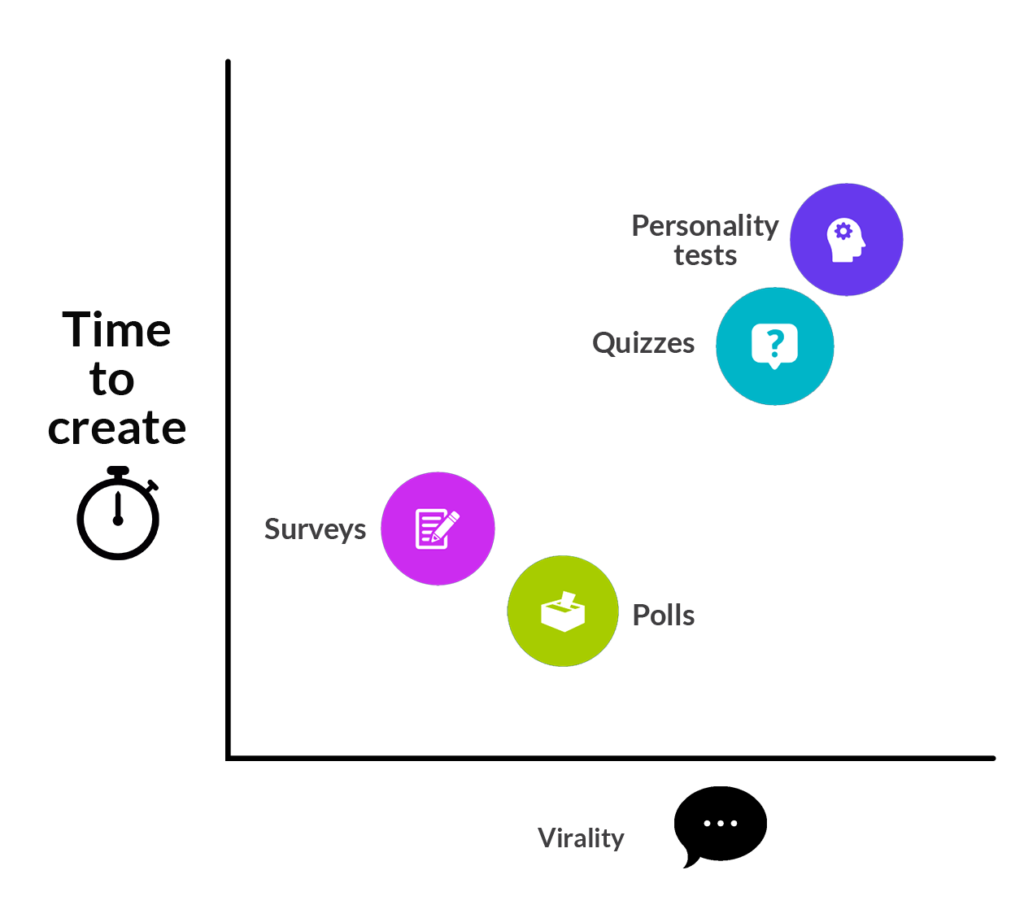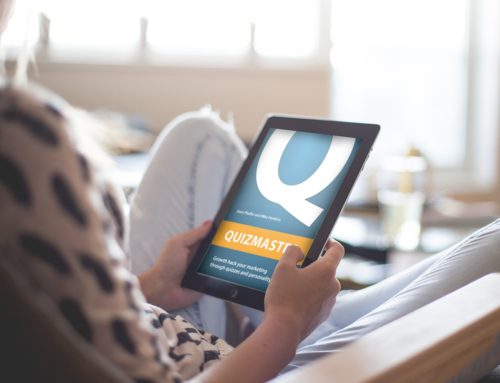Often, we use the words quiz and personality test interchangeably. However, there are some key differences – so you should choose which type you create carefully. Selecting either a quiz or personality test can dramatically affect your results – depending on your marketing goals.
What separates these two types of online tests?
A quiz is a series of multiple choice questions based around definite right and wrong answers, with the reader receiving an end result based on their number of correct answers.
Compare that with a personality test – which is the quiz experience of answering questions sitting on the couch of Sigmund Freud. There are no correct or false answers. Instead, each reader gets a result that reflects the personality traits from their answers.
In the following examples, we’ll demonstrate by using our team’s favorite (and much missed) musician, David Bowie.
Quiz
A typical quiz asks you to prove your knowledge about a subject – something along the lines of “How much do you know about David Bowie?”
The reader is given a series of multiple choice questions – and based on the percentage of correct answers, they will receive one of a range of results.
Using our Bowie quiz, our readers could get:
- 0% correct: ”‘Never let me down’ again – just like the worst Bowie album (from his self-confessed Phil Collins years), you can definitely do better.”
- 100% correct: “You’re definitely Ziggy Stardust. From Bowie’s classic 1972 album to his B-sides and rarely heard tracks, you’re a bonafide Bowie believer!”
- Plus, two or three other answers for the middle outcomes.
Personality test
Typical personality tests sound something like “What dog are you?” (that phenomenally popular test from our Tickle.com days) or in the case of David Bowie – “What Bowie album matches your musical muse?”
The key is that you don’t want to include any obviously right or wrong answers here.
Instead, all the answers should sound equally interesting, so the user answers honestly – and receives a result that fits their personality. The closer you can get the results to sound applicable to each user – the more likely they are to share that with their friends.
Time to create vs. virality
Personality tests take a lot longer to create than quizzes. After all, you cannot Google the correct answers to the questions. Instead you have to think hard about the personality traits that make up the core elements of your result types and then come up with questions to figure out which personality best matches the test taker’s true self. Not an easy task. But therefore, personality test results get shared even more often than quizzes. Why? Because they reveal the true self of the test taker and that is usually something humans are proud to share.




